Most Popular
Hello Hangeul
-
1
Welding book first in vocational Korean series for foreign labor
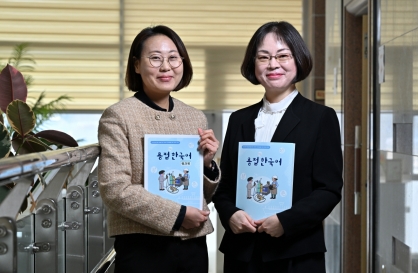
-
2
[Korea Beyond Korea] In Sao Paulo, horizons expand for Korean studies
![[Korea Beyond Korea] In Sao Paulo, horizons expand for Korean studies](//res.heraldm.com/phpwas/restmb_idxmake.php?idx=644&simg=/content/image/2023/11/20/20231120000619_0.jpg&u=20231206104853)
-
3
In Brasilia, worldly dreams are born from Korean classes
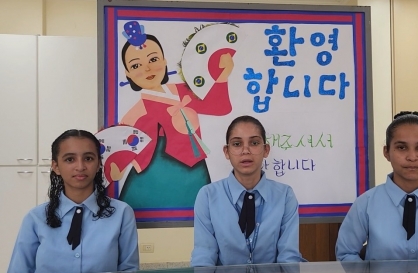
-
4
Americans seeking to visit Korea learn the language in LA
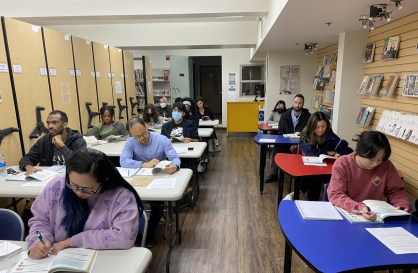
-
5
[Korea Beyond Korea] Berlin, Europe's Korean Studies hub, nurtures next-gen experts, scholars
![[Korea Beyond Korea] Berlin, Europe's Korean Studies hub, nurtures next-gen experts, scholars](//res.heraldm.com/phpwas/restmb_idxmake.php?idx=644&simg=/content/image/2023/10/18/20231018000929_0.jpg&u=20231023154735)
[Hello Hangeul] Inside the Korean language classroom in Madrid
By Hwang Dong-heePublished : Dec. 3, 2023 - 19:40
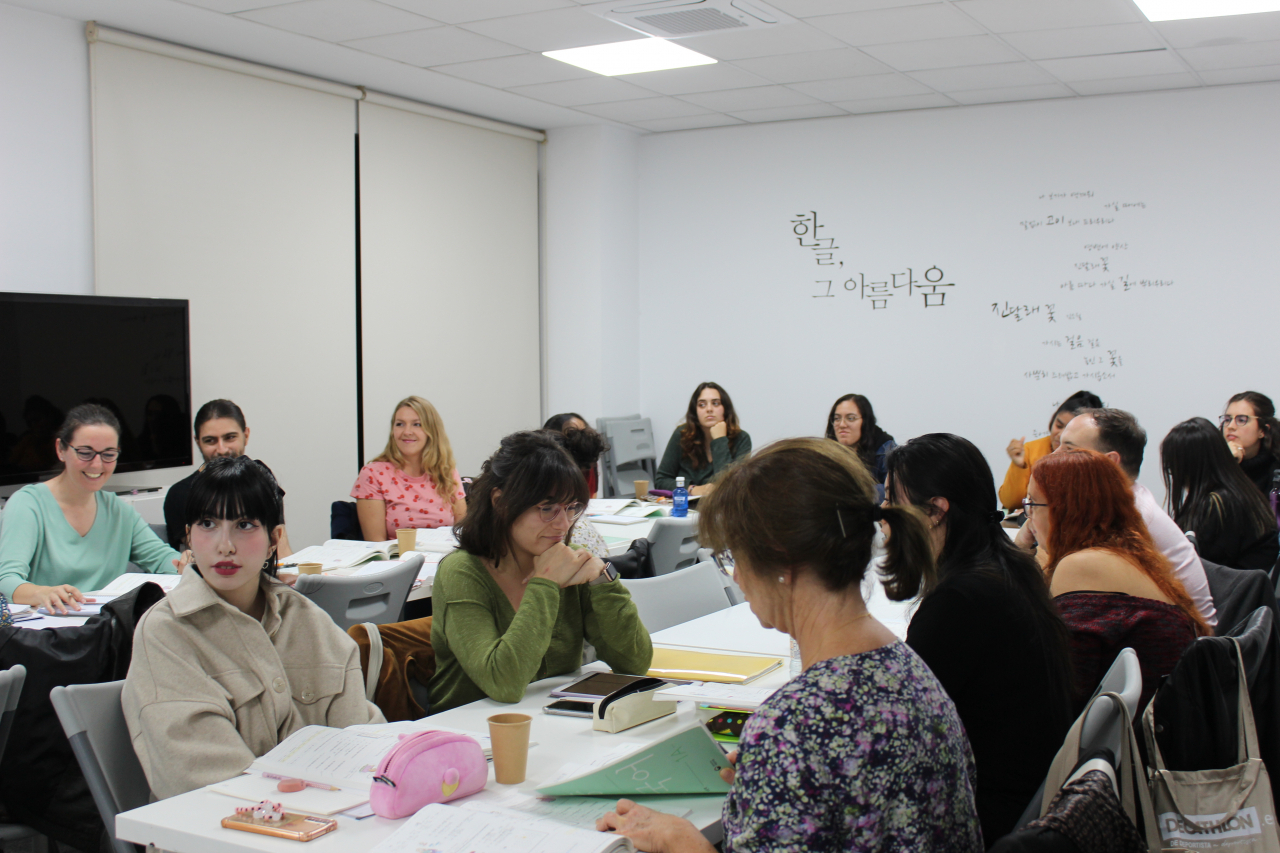
Madrid -- On a Friday evening in October, at the King Sejong Institute of the Korean Cultural Center in Madrid, Spain, two Korean language courses -- the N1 beginner class and the N5 advanced class -- were held, in a quite distinct atmosphere.
The Spain branch of the King Sejong Institute provides a preparatory course and four regular intensive courses (N1-4), along with two nine-month-long courses (N5,6). The N5 and N6 advanced classes run from March to December, while the rest of the N-courses take place from September to December.
At the N5 class on that day, the six students were maintaining a notably serious tone.
They were learning different vocabularies on the theme of “moving” and grammatical expressions of hypothetical situations, such as: “We're going to visit Eugene's house this weekend for a housewarming party.” “Yes, I will attend if I am not busy. But I'm worried because I have a lot of work to do these days.”
After learning the phrases of the day, the students quietly worked on their worksheets while the instructor went around the class and checked on students one by one.
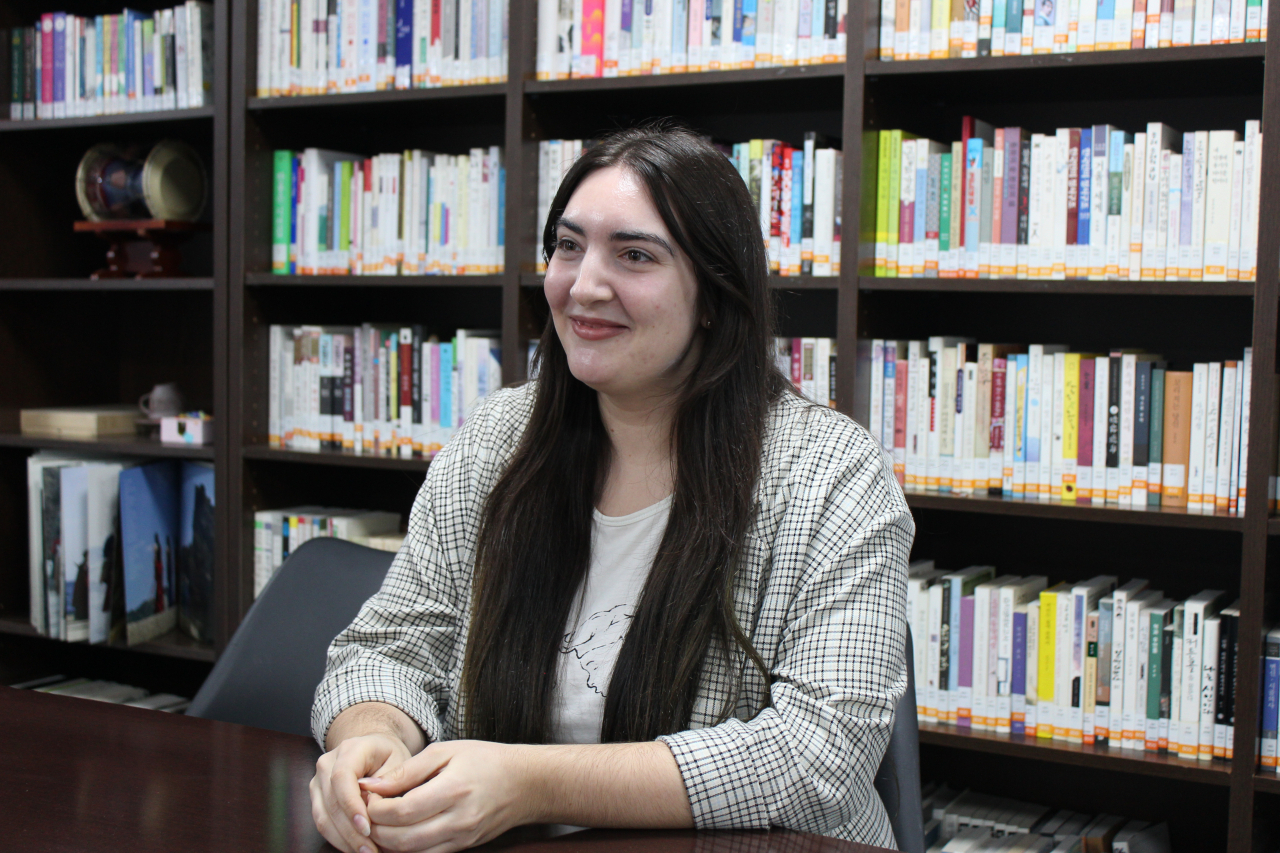
“It’s always interesting to learn how people live in different cultures,” said Jessica in an interview with The Korea Herald. She is a researcher at a university. "We have learned different vocabularies and practiced applying them in various situations."
She said one of the most challenging things about learning a different language is grasping cultural aspects and abstract concepts.
“I guess abstract things and cultural notions that we cannot directly relate to are hard to grasp. There is some vocabulary and grammar that are common in all languages, but there are some concepts that don't exist in Spanish or even in English. So it's difficult to find a term that is similar in your language,” she explained.
“I guess, for many foreigners, it's really difficult to understand the honorifics and how they are used in different circumstances.”
She began learning Korean out of personal interest, initially self-studying and later taking classes as elective courses at university. Now, she finds herself actively engaged in learning the language at the center and hopes to visit Korea in the future.
“I am interested in the language and the process of learning a new language. I majored in English and also learned Italian when I lived in the country for a while.”
She likes to listen to more Korean music, but is not yet familiar with watching Korean films or dramas.
“I would like to try out more Korean films when I am more used to the language,” she said. “I hope to visit Korea sometime. That is my long-term goal.”
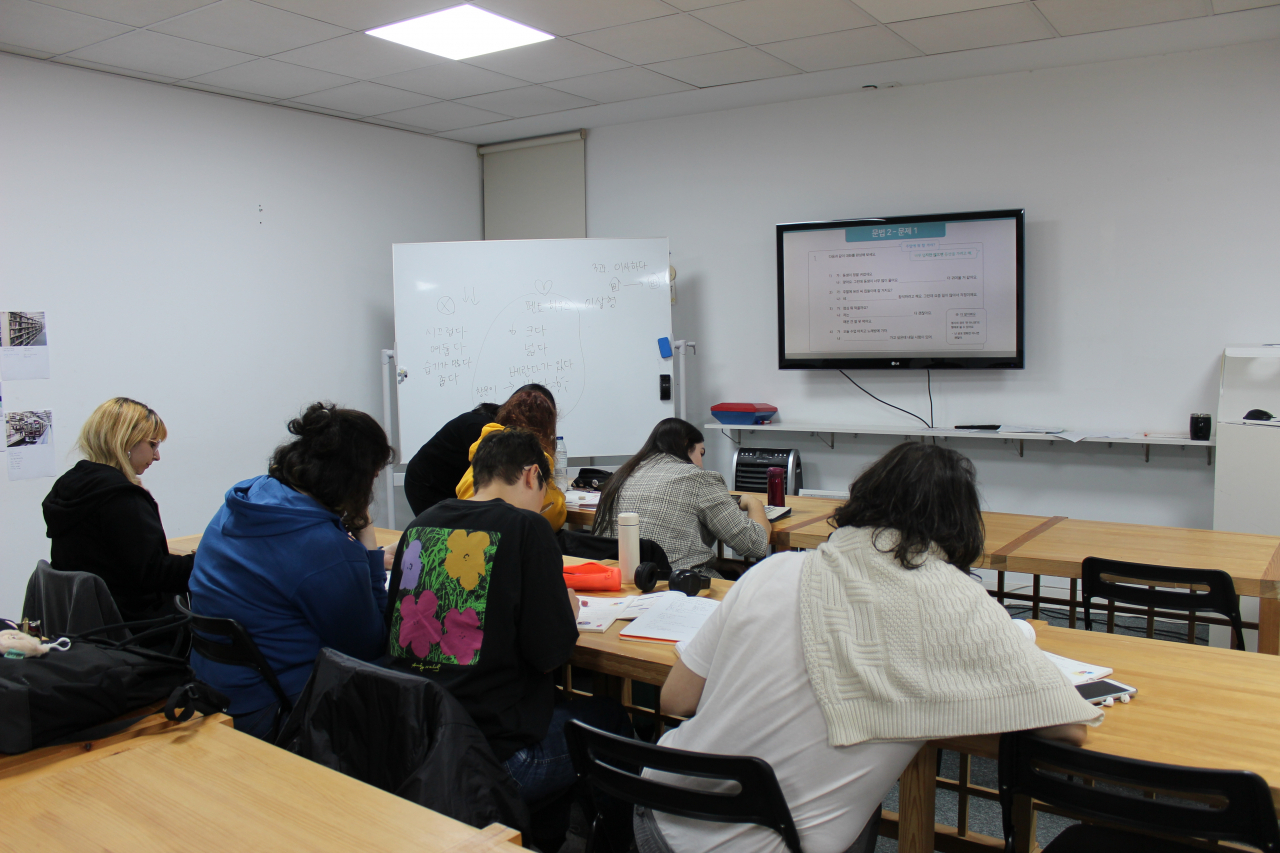
In contrast, the students in the N1 class seemed relaxed and without pressure. There were some 18 to 20 students. They were learning the expression, “I am (doing) ~, at ~ (time).”
Once they grasped the basic phrase, they paired up, like Martha and Guillermo, taking turns practicing speaking and completing worksheets. The students openly discussed their schedules, talking about their lunchtime, meetings, and evening plans.
The beginner class consistently attracts the most enthusiastic applicants, ranging in age from their 20s to 60s, according to an official at the Korean Cultural Center in Madrid.
“Initially, students come to learn Korean because they are interested in Korean culture, including music, movies and dramas. (To meet their needs) the Korean Cultural Center in Madrid offers various events related to Korean culture, operates a library, and encourages diverse participation in hands-on experiences for students,” the official said.
The following series is part of The Korea Herald's "Hello Hangeul" project which consists of interviews, in-depth analyses, videos and various other forms of content that shed light on the stories of people who are learning the Korean language and the correlation between Korea's soft power and the rise of its language within the league of world languages. -- Ed.













![[Korea Beyond Korea] In Sao Paulo, horizons expand for Korean studies](http://res.heraldm.com/phpwas/restmb_idxmake.php?idx=644&simg=/content/image/2023/11/20/20231120000619_0.jpg&u=20231206104853)


![[Korea Beyond Korea] Berlin, Europe's Korean Studies hub, nurtures next-gen experts, scholars](http://res.heraldm.com/phpwas/restmb_idxmake.php?idx=644&simg=/content/image/2023/10/18/20231018000929_0.jpg&u=20231023154735)







![[Today’s K-pop] Treasure to publish magazine for debut anniversary](http://res.heraldm.com/phpwas/restmb_idxmake.php?idx=642&simg=/content/image/2024/07/26/20240726050551_0.jpg&u=)